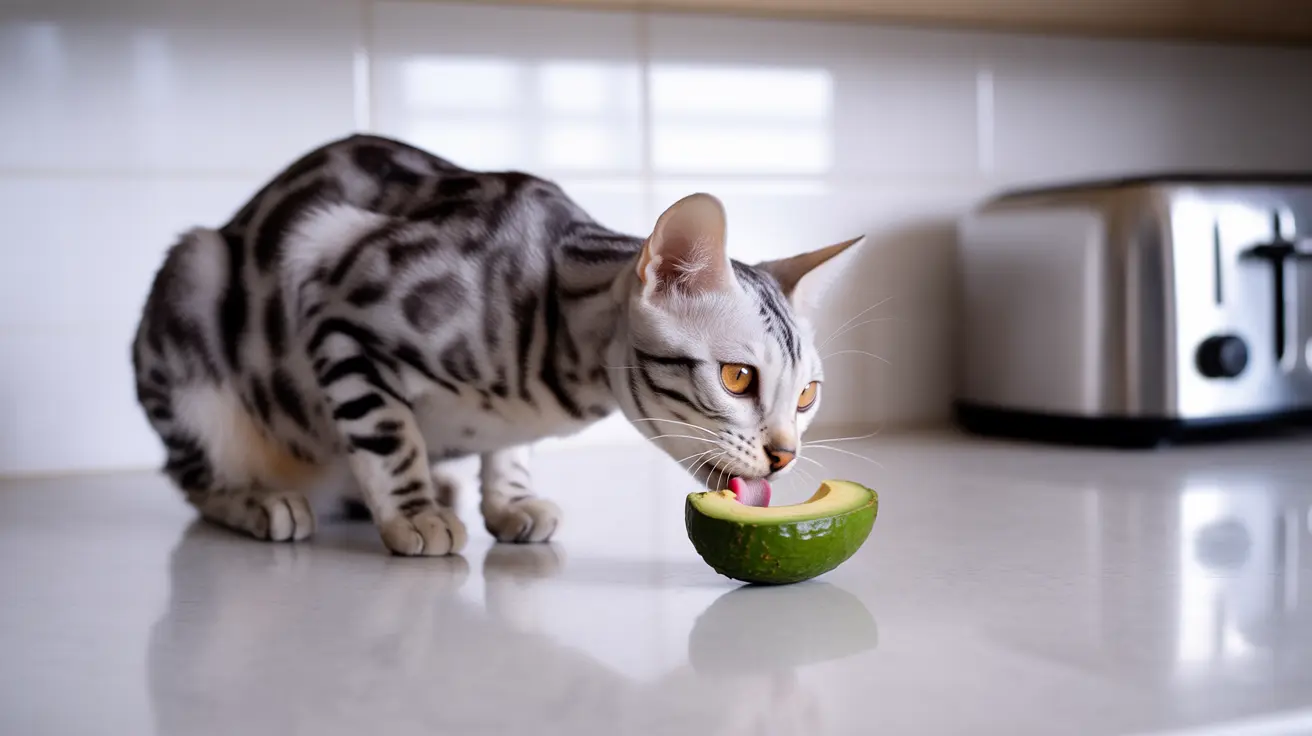As avocados continue to gain popularity in human diets, many cat owners wonder about sharing this nutritious fruit with their feline companions. While avocados offer impressive nutritional benefits, their safety for cats isn't straightforward. This comprehensive guide will help you understand whether cats can eat avocado, the potential risks and benefits, and how to safely incorporate this fruit into your cat's diet – if at all.
Understanding Avocado's Nutritional Profile
Avocados pack an impressive nutritional punch, containing 18 essential amino acids, healthy monounsaturated fats, and various vitamins and minerals. For cats, these nutrients could potentially support muscle development, skin health, and immune function. The fruit contains beneficial compounds like oleic acid, which has anti-inflammatory properties, and antioxidants that support eye health.
However, it's crucial to understand that cats are obligate carnivores, meaning they don't require fruits in their diet. While some nutrients in avocados might be beneficial, cats can obtain these same nutrients from their regular cat food.
The Risks of Feeding Avocado to Cats
Persin Toxicity
The primary concern with avocados is persin, a natural fungicidal toxin. While this compound is concentrated in the pit, skin, leaves, and bark of the avocado tree, small amounts are also present in the flesh. Although cats are generally less sensitive to persin than other animals, exposure to significant amounts can cause health issues.
Physical Hazards and Digestive Concerns
- The pit poses a serious choking hazard
- The high fat content can trigger pancreatitis
- The skin can cause intestinal blockages if ingested
- Even the flesh can cause digestive upset in sensitive cats
Safe Feeding Guidelines
If you decide to offer avocado to your cat, follow these strict guidelines:
Proper Serving Size and Preparation
- Limit portions to no more than one tablespoon of flesh
- Remove all skin and pit completely
- Offer only fresh, ripe avocado
- Never serve guacamole or seasoned avocado
- Monitor your cat for any adverse reactions
When to Avoid Avocado
- Have existing digestive issues
- Are overweight or prone to pancreatitis
- Have shown sensitivity to new foods
- Are very young or elderly
Signs of Avocado-Related Problems
- Vomiting or diarrhea
- Loss of appetite
- Lethargy
- Abdominal pain or discomfort
- Difficulty breathing
Frequently Asked Questions
Is it safe for cats to eat avocado, and what are the potential risks?
While cats can safely eat small amounts of avocado flesh, there are risks including persin toxicity, choking hazards from the pit, and potential digestive issues from the high fat content. The safest approach is to avoid feeding avocado or offer only minimal amounts of the flesh.
Can cats eat avocado regularly, or should it be an occasional treat?
Avocado should only be given as an occasional treat, if at all. It should never become a regular part of a cat's diet due to the risks of digestive issues and potential toxicity concerns.
What parts of an avocado are toxic to cats, and how can I prevent accidental ingestion?
The pit, skin, leaves, and bark contain the highest concentrations of persin and are the most toxic parts. Store avocados securely, dispose of scraps properly, and never leave these parts accessible to your cat.
How much avocado is safe for a cat to eat, and what are the recommended serving sizes?
If offering avocado, limit portions to no more than one tablespoon of flesh, and only serve it occasionally. Always remove the pit and skin completely.
What symptoms should I look out for if my cat eats too much avocado, and when should I consult a vet?
Watch for vomiting, diarrhea, lethargy, loss of appetite, or abdominal pain. Contact your veterinarian immediately if your cat shows any of these symptoms or if they've consumed large amounts of avocado or any parts other than the flesh.






